Tracey Spicer, NOW Australia and the gathering storm
There are fears her #MeToo crusade will backfire, but Tracey Spicer insists there’s plenty of dirt still to come out in the wash.
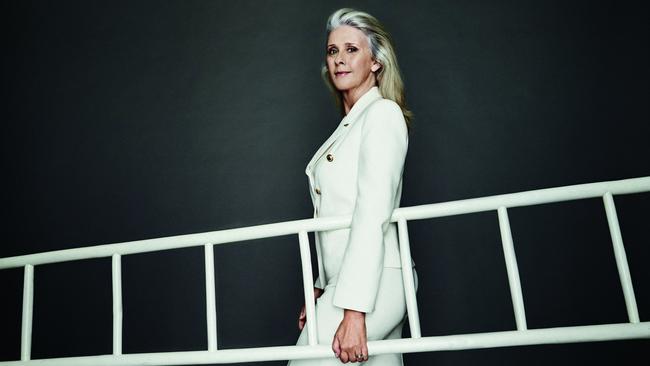
Tracey Spicer remembers the moment she accidentally became the avenging angel of Australian feminism. It was October last year, and the former television journalist was at home in her split-level house on Sydney’s northern beaches when a series of vile, misogynistic messages began appearing on her Facebook feed. The abuse itself was nothing new – rape threats, death threats, grotesque imaginings about her anatomy, the kind of stuff Spicer had been enduring for years, most recently after publishing a memoir that detailed her experiences of sexual harassment and assault. She knew that these online trolls are often artificial creations, generated overseas by automated programs.
But some of these latest hatemongers, Spicer noticed, were actual human beings – Australian men whose Facebook accounts showed them relaxing in pleasant suburban homes, playing with grandchildren and hugging their wives when they weren’t threatening her with sexual violence. So she drove to Manly police station to report them, and it was there that a female detective casually remarked on the tsunami of sexual assault allegations that were being made about the Hollywood producer Harvey Weinstein, and how rare it was for Australian women to approach police about abuse and harassment.
So it was that Spicer decided to send out The Tweet That Started It All. “Currently, I am investigating two long-term offenders in our media industry,” she messaged her Twitter followers on October 18. “Please, contact me privately to tell your stories.” In the five months since, more than 1600 women have responded and three of the country’s most popular male celebrities – television personality Don Burke and actors Craig McLachlan and John Jarratt – have been publicly accused; actor Geoffrey Rush has also been accused in a report separate to her campaign. Police investigations are underway in three states, and Rush and McLachlan have counter-attacked fiercely, suing for defamation, while Jarratt has emphatically denied the historical allegation levelled against him. At the centre of the storm is Spicer, alternately hailed as a hero by young women and attacked by lawyers, men’s rights campaigners and even some feminists for unleashing “trial by Twitter”.
“I suppose that conversation with the detective was really a lightbulb moment for me,” she recalls as a taxi takes her from Sydney airport to an inner-city office where the next phase in her campaign is taking shape in secretive circumstances. It’s late March, and over the preceding weeks 50-year-old Spicer has been ricocheting between Melbourne, Sydney, Perth and Canberra to appear at International Women’s Day events, feminist workshops, business lunches and youth summits where she has been feted by cheering female crowds. Behind the scenes she has also been orchestrating the creation and launch of a new not-for-profit organisation, NOW Australia, to support women who have suffered workplace harassment and assault.
In some ways, she is an unlikely leader for this crusade. Her history as a journalist – radio news reporter, Ten Network reporter and newsreader from 1992 to 2006, talkback radio host, newspaper columnist and online commentator – is not notable for its investigative work. Her memoir, The Good Girl Stripped Bare, is a comedic romp that riffs candidly on her roots as a suburban bogan and her many foibles, such as the performance anxiety that caused her to faint twice while presenting the weather report.
Like many people steeped in commercial television, her mannerisms – the unflagging enthusiasm, the knowing nod, the sympathetic smile – can seem like a veneer baked on by years of talking to camera. Teaching people how to deal with the media has in fact been Spicer’s main paying job in recent years; the day we meet at Sydney airport she’s returning from one such training session, looking every bit the television professional in a spotless cream trouser suit with gold buttons, her shoulder-length blonde hair worn loose, with two stylish streaks of grey framing her face.
That she’s passionate about the cause she has been pursuing since October is not in doubt – the work has been largely unpaid, despite being so all-consuming that she confesses to feeling utterly exhausted. Former colleagues describe a woman whose personable manner belies her driven work ethic. “She’s one of the best networkers I’ve ever seen,” says Prue MacSween, who appeared on talkback radio with Spicer for two years. “She’s got energy and drive, she’s very charming and she works a room very well. I admire that. And the bitch looks fabulous as well.”
Spicer describes herself as an “accidental activist”, but the title of her memoir offers a deeper clue to what drives her. For all its humour, the book is in part a mea culpa in which she confesses more than once to abandoning her feminist principles in pursuit of a media career. Television in Spicer’s era was run largely by unreconstructed alpha males, like the news director who advised her to “stick your tits out more”, or the high-ranking executive who drunkenly groped her buttock at a Christmas party. The Good Girl Stripped Bare catalogues many examples of such harassment and sexism, yet in her 20-odd years in the industry Spicer rarely lodged a formal complaint, and she’s chagrined that she largely buckled to the pressure to slim down and glam up for the camera. “What a flawed role model I’ve been by dieting, primping and preening,” she concludes.
It’s a theme that comes up again as our taxi approaches the city and Spicer admits she feels guilty about her timidity in 2015, when she abandoned writing opinion columns for several years because of threats of violence from online trolls. “I wish I’d just got the armour on and done the whole Wonder Woman thing,” she says. “But the kids were quite little then and I was frightened for them.”
It’s not hard to see why the collective fury of #MeToo feels powerful to women like Spicer; it’s a pivotal moment in which new forms of media are helping expose the systemic misogyny many have silently endured. “This is such an exciting moment,” she says with a visible gleam. “It really is the Fourth Wave of feminism.” It’s an intoxicating idea, even if others fear the destruction that wave might wreak.
Spicer’s first big job in television journalism landed her right in the testosterone-saturated heart of early 1990s Australian corporate culture – the Nine Network, a company whose hulking boss, Kerry Packer, kept a gun in his desk drawer and threw cricket balls at his executives to motivate them. As a 24-year-old junior reporter in Nine’s Melbourne studios, Spicer found herself working for John Sorell, a hard-drinking news director whose advice to female staff was delivered in barked commands, such as “I want two inches off your hair and two inches off your arse!” Early in Spicer’s tenure, producer Sue Fogarty took her aside and advised: “You’ve got to stand up to these guys.”
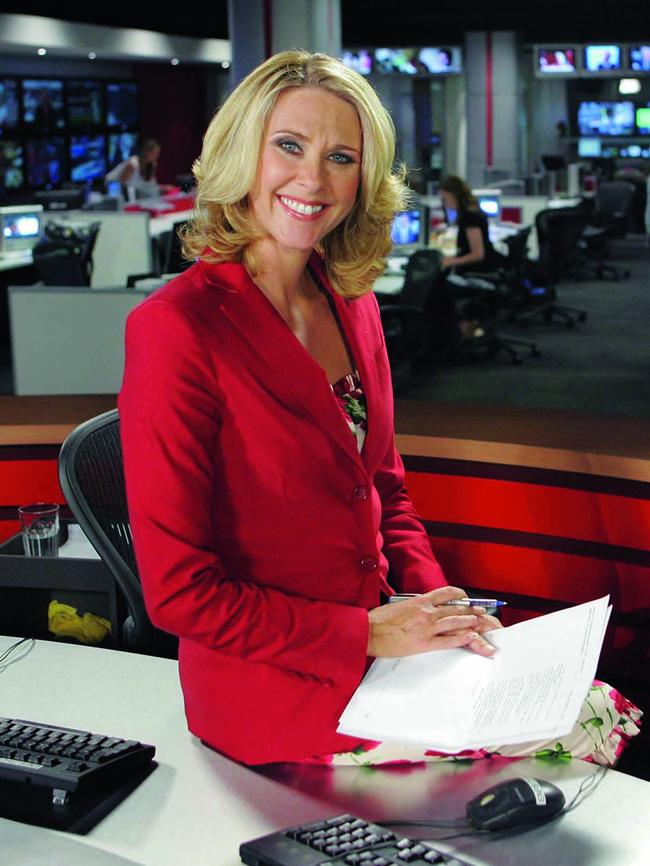
That challenge was one that Spicer struggled with for many years. A bright kid from the outer ’burbs of Brisbane, she’d topped maths and English at her co-ed Catholic college but sheepishly admits to having enrolled in the Miss Australia Quest and attending the June Dally-Watkins school of deportment while studying journalism at Queensland Institute of Technology. As a feminist, she was committed enough to read Naomi Wolf and avoid a traditional wedding – in 2001 she married cameraman Jason Thompson in secret after a mock “elopement” to Greece. But working in television proved to be a “Faustian bargain” that required women to conform to stereotype – stay slim, look feminine, pose compliantly for that Woman’s Day feature on yummy mummies – while understanding that your looks are a depreciating currency.
Spicer became a newsreader at the Ten Network when she was 26; by her mid-30s, shortly after the birth of her son Taj, she was being pressured to work off-camera. When she was 39, and just back from maternity leave after giving birth to her daughter Grace, the network emailed her agent to say her contract wouldn’t be renewed.
Spicer was so enraged that she hired a lawyer and orchestrated a media campaign that put her on the front page of The Daily Telegraph. But even at the time, not everyone shared her ire. Television journalist Tracee Hutchison penned an article for The Age decrying Spicer’s decision to “play the discrimination card”, pointing out that Ten had been a strong advocate for women on air and in the executive ranks. The Seven Network’s then head of news, Peter Meakin, noted that Spicer was far from the oldest woman on television.
Whether it was sex discrimination or just a television network revamping its schedule is a question that still splits opinion. Former Sky news reader Susanne Latimore is among the many women who praise Spicer’s risky gambit of taking on Ten publicly. “I remember asking her once how she did that, because I would never have the courage,” recalls Latimore. “She said something like, ‘I just got angry; I can’t help it. It gets under my skin and I’ve got to do something.’” Others take a more jaundiced view. “She’s had a few good jobs but they haven’t been exactly top of the tree,” comments one television veteran. “Perhaps there’s a bit of ‘look at me’.”
In the end Spicer accepted a payout from Ten. But the experience forever coloured her view of the television industry, which she is wont to describe as a nightmarish workplace permeated by a “wallpaper of invisible misogyny”, where female presenters are pitted against each other like Hunger Games contestants and routinely discarded after pregnancy. Carmel Travers, who was Ten’s head of news and current affairs from 1993 to 1996 and appointed Spicer as a newsreader, says her own memory is quite different; while not commenting on the circumstances of Spicer’s dismissal, Travers says Ten during her tenure was an enlightened workplace that “celebrated the role of women” by actively recruiting them to senior management and board level.
“One of the things that I find concerning is that someone as capable as Tracey has chosen to devote so much of her energy to this issue,” says Travers. “It wasn’t my experience… but I think we do need to understand that it was the experience of some people, and they’re right to shine a light on that, to cause all of us to reflect on it.”
Mark Latham, the former Labor Party leader who is now one of Australia’s most bellicose critics of modern feminism, possibly doesn’t realise the pivotal role he played in helping turn #MeToo into a major social movement in Australia. In a sweetly ironic twist, it was one of Latham’s online diatribes about “femi-nutters” that set in motion the events that led to Tracey Spicer’s now-famous October tweet.
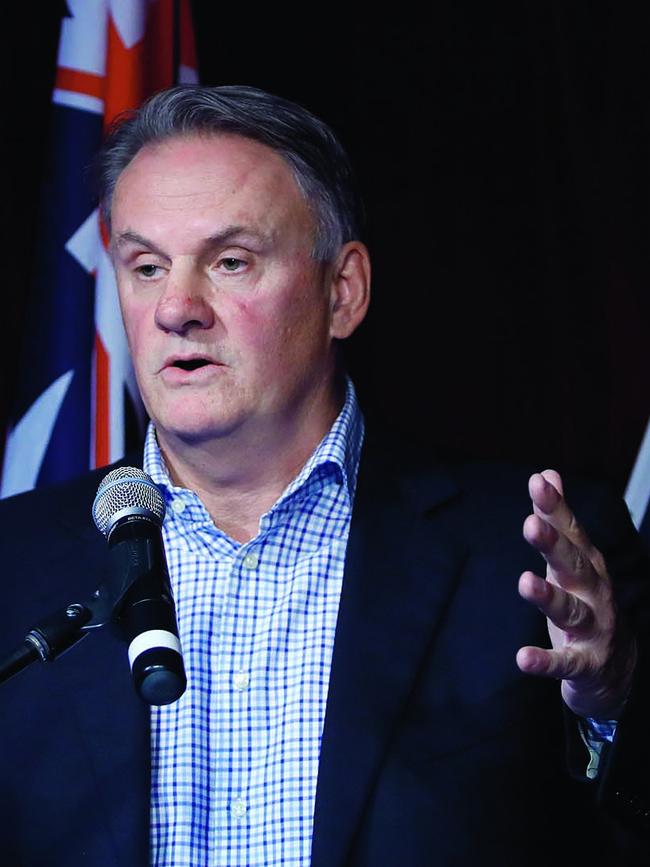
In the years that followed her sacking from Ten, Spicer forged a diverse career in talkback radio, newspaper commentary and public speaking. She also became more politically engaged, co-founding the mentoring organisation Women In Media and starting a media training organisation, Outspoken Women, that offered scholarships to disadvantaged women. In late 2013, she appeared at a TEDx symposium on women’s issues at the State Library of Queensland in Brisbane, alongside feminist heavy-hitters such as Anne Summers and columnist Clementine Ford. Asked to speak for 18 minutes on the topic of “productivity”, Spicer took to the stage and gradually stripped off her clothes and make-up in order to deconstruct how much wasteful energy women expend on their appearance. More than 4.5 million people have since watched the talk online, quite a few of them men who were apparently attracted by its title – “The Lady Stripped Bare” – only to fume when Spicer stopped at shorts and singlet. Thus began her encounters with the internet’s dark misogynist underbelly.
“It put me on the radar of the men’s rights groups,” says Spicer, who recalls receiving death threats and rape threats for the first time after the TEDx talk, a pattern of abuse that escalated to threats against her children, prompting her to retreat from writing columns in 2015. “I know so many women who’ve stopped writing opinion pieces or stopped expressing their opinions publicly because they’ve been silenced by this fear,” she says. “I really understand that – it’s terrifying, particularly to young women who are starting to find their voices. It’s really damaging and dangerous, and the platforms aren’t doing enough. They’re getting more eyeballs out of this.”
Spicer felt powerless to do anything because most of the trolls appeared to be either men living overseas or computer-generated “bots”. But last year things shifted after she published her memoir and contributed a chapter to the book Unbreakable, in which Australian women described their experiences of sexual assault. In Unbreakable, Spicer recounted how a masseur in Turkey inserted his fingers into her vagina when she was 28, an assault that rendered her so paralysed with fear she was unable to alert her husband, who was being massaged nearby in the same steam room. In October, Latham devoted his seven-minute video- blog to Unbreakable, denouncing the book as “self-obsessed drivel” and singling out Spicer’s chapter by reading aloud her account of the assault, and expressing incredulity that she hadn’t alerted her husband. Latham added that Spicer’s description of herself as a “frightened little girl” at the time of the assault showed how feminism encourages women to think of themselves as powerless.
“My intention was to write about the ‘freeze’ response to sexual assault, which there’s a huge body of evidence about now,” Spicer says. “What happened to me occurred in a back street of a tiny town in Turkey; I didn’t know what to do and it was terrifying.” Latham’s blog set off a new avalanche of threats on Spicer’s social media feeds, but this time some of her abusers were readily identifiable, and she decided to press charges. That very month, The New York Times and New Yorker magazine had broken the extraordinary story of Hollywood producer Harvey Weinstein’s long history of sexual assaults against women. At Manly police station, Spicer’s conversation with the female detective got her thinking about men in the Australian entertainment industry whose behaviour was notorious. One name in particular sprang to mind: Don Burke, the hugely popular former star of Burke’s Backyard.
“He was the main person I was thinking of when I sent the tweet out,” Spicer recalls, adding that stories about Burke’s off-screen behaviour had circulated for decades. Within two days of inviting women to contact her she had been inundated with hundreds of allegations about more than 30 men, and she reached out to investigative journalists at the ABC and Fairfax. By late November more than 870 women had come forward, 50 of them making allegations against Burke.
From the outset, Spicer’s stated intention of compiling a hit-list of “serial predators” via social media prompted dissent, even from women. “I’m not convinced that this is the best way to respond,” one young ABC manager tweeted Spicer. “…It seems almost vindictive.” Don Burke vehemently denied the allegations against him, but he has taken no legal action, and his appearance on the Nine Network’s A Current Affair was a disaster in which he attributed his poor relations with women to Asperger Syndrome, an autism spectrum disorder he claimed to have self-diagnosed. By the end of the year, #MeToo in the United States had derailed the careers of more than a dozen well-known men, including actor Kevin Spacey, comedian Louis C.K., hip-hop entrepreneur Russell Simmons and congressman Al Franken. But the second of Spicer’s investigations to go public caused controversy of a different kind.
On January 8, Fairfax and the ABC aired interviews with three actresses who claimed the well-known actor Craig McLachlan had sexually harassed or assaulted them when they worked with him onstage. One was Christie Whelan Browne, McLachlan’s co-star in The Rocky Horror Show, who wept as she alleged he had touched her vagina and buttock while they were performing. McLachlan was immediately stood down from Rocky Horror, and his television series The Doctor Blake Mysteries remains suspended pending the results of a police investigation. But the producers of Doctor Blake say an independent investigation found no evidence of harassment, and Australian feminist Germaine Greer was among the first to sympathise with McLachlan, saying he had been punished before any allegation was proven. The #MeToo movement, Greer added, was rewriting the rules of sexual engagement so that “if you are in a position of power or influence, you can’t make a pass at somebody because it would be considered inappropriate use of force”.
That dissent has grown as allegations aired in the media have strayed further and further from sexual assault. Last month, the feminist writer Helen Razer denounced #MeToo after News Corp journalist Candace Sutton aired a 28-year-old incident in which comedian Tim Ferguson responded to a bad review by sending her obscene letters and cartoons. “Don’t tell me this is feminism,” Razer wrote, describing #MeToo as a celebrity-obsessed media spectacle that focused on a small coterie of “acceptable, agreeable” women without offering any systemic solution to workplace harassment.
Musician Lindy Morrison, former drummer with The Go-Betweens and a longstanding feminist activist, says she was appalled when Sydney rock musician Kirin J Callinan was banned from the Laneway music festival in January after he lifted his kilt and flashed his genitals at the camera crews outside the ARIA music awards. The Laneway ban followed a campaign by transgender hip-hop artist Miss Blanks, who accused Callinan of normalising sexual violence. Police later charged him with wilful exposure, resulting in a good behaviour bond.
“To me it was indiscriminate and chasing for the thrill of the hunt,” says Morrison, who worries that #MeToo has degenerated into alarmism and portrays women as passive victims in the face of male misbehaviour. “I always found that telling someone to get f..ked worked pretty well – perhaps people could try that more often,” she says. “I don’t mean to sound insensitive to the millions of powerless women in the world, but in this country, women can stand up.”
It’s a line echoed by veteran television personality Kerri-Anne Kennerley, who says: “I hope we aren’t raising a generation of young women who can’t defend themselves without running to the Human Resources department. The HR department must be there, absolutely. But if you want to maintain a good career and a great life, you must be able to stand up for yourself.”
Spicer responds to these criticisms by returning to the themes of her own life. “I’m naturally the good girl, the people pleaser, so I didn’t want to cause any ructions. And I’ve been contacted by a lot of women from that generation in the media and entertainment industry who have said exactly what Kerri-Anne said: ‘We just told them to piss off, and that’s what young women should do.’ I understand why women of that vintage say that, because they were in the workplace at a very, very difficult time. But there’s a lot of women who aren’t as tough as that, who don’t feel as strong as that, who are frightened. And I don’t think it’s fair that the burden is on women to beat these men off; surely the focus should be on men to be changing their behaviour?”
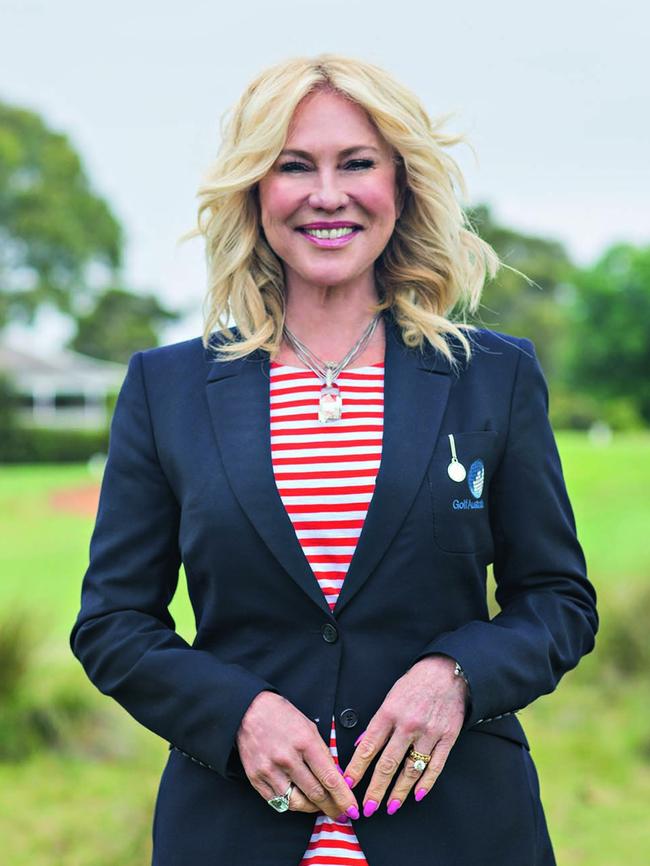
Naming men in the media, Spicer says, was a last resort for women who had tried to get action through official channels. Women complained to Nine management about Don Burke’s behaviour, she points out, but nothing was done because he was too valuable a talent. It’s an argument that doesn’t wash with barrister Greg Barns. “I don’t buy this statement that there were no other avenues,” Barns says. “There are plenty of law firms that will take on these cases, plenty of women’s legal services. I’m not saying I don’t believe the claims these women are making. My point is the process. I think that humiliating a person like Craig McLachlan is becoming a tried and tested means of getting action, and it’s done for that purpose. It seemed to me to have an element of revenge by some frustrated people.”
Of the 1600-plus women who have contacted Spicer, she estimates that roughly a dozen have since gone to police. Asked if she has reason to doubt any of the stories she has been told, she replies: “Well, to be honest with you, no. But I’m not judge, jury and executioner. That’s why I’m the gatherer of evidence. And we know from statistics that a very tiny, tiny percentage of women make vexatious claims.”
That may be so, but allegations of workplace harassment are notoriously fraught. In late November a woman posted a message on Spicer’s Facebook page claiming she had been stalked by a male colleague for eight years, adding that police not only ignored her complaints but prosecuted her, and she now fantasised about killing her harasser. Spicer responded: “I am so sorry to hear about this. Devastating.” A quick internet search would have revealed that the woman has a history of posting long, rambling screeds online claiming her car radio and electricity supply are being remotely controlled.
In the three months since the Craig McLachlan allegations appeared, no other stories have emerged from Spicer’s investigation, and the legal fallout from #MeToo in Australia may already have created a deterrent. In February McLachlan sued the ABC, Fairfax and Christie Whelan Brown, with his barrister Stuart Littlemore QC (formerly of Media Watch fame) accusing the actress of being a hypocrite who had herself indulged in backstage sexual horseplay. “The plaintiff has been greatly injured in his business, personal and professional reputation and has been and will be brought into public disrepute, odium, ridicule and contempt,” McLachlan’s claim states.
At the same time, actor Geoffrey Rush is suing Nationwide News (publisher of this magazine) over a Daily Telegraph story that alleged a female actor had complained about his “inappropriate behaviour” during a stage production of King Lear. Spicer had nothing to do with that story, but the case is being closely watched in light of the $4.5 million defamation payment the actress Rebel Wilson won from Bauer Media last September.
“These stories will continue to roll out,” Spicer insists. “But people need to be patient. We can’t just throw stories out there and name people without having the evidence to back it up. It will happen, but it will take an awfully long period of time.”
On March 25, Spicer unveiled the most ambitious by-product of her accidental activism: NOW Australia, a new not-for-profit organisation dedicated to supporting people who have suffered sexual harassment in the workplace. The idea is not original – it was modelled on Time’s Up, the US organisation founded in January by several Hollywood actresses – but its birth was a testament to Spicer’s prodigious talent for marshalling the forces of media, public relations, philanthropy and star power in pursuit of a goal.
On the day we met at Sydney Airport, NOW was three days away from launch. For the previous two months Spicer had somehow recruited the undercover and unpaid assistance of more than 30 filmmakers, web designers, fundraisers, PR specialists, counselling experts, lawyers and journalists to prepare a multi-media blitzkrieg. Celebrities including Tina Arena, Sarah Blasko, Deborah Mailman and Helen Dallimore had signed up as ambassadors, posing for photos and shooting videos recounting their experiences of harassment and assault. Philanthropists had been approached, businesswoman Ann Sherry had agreed to be patron, and T-shirts were being printed with the eye-catching NOW logo. Spicer timed the launch for a Sunday, a slow news day, pre-arranging coverage on the Ten Network and in the tabloids. By the following day her Twitter feed was choked with effusive congratulations from politicians, business executives, journalists and women sharing their stories of harassment.
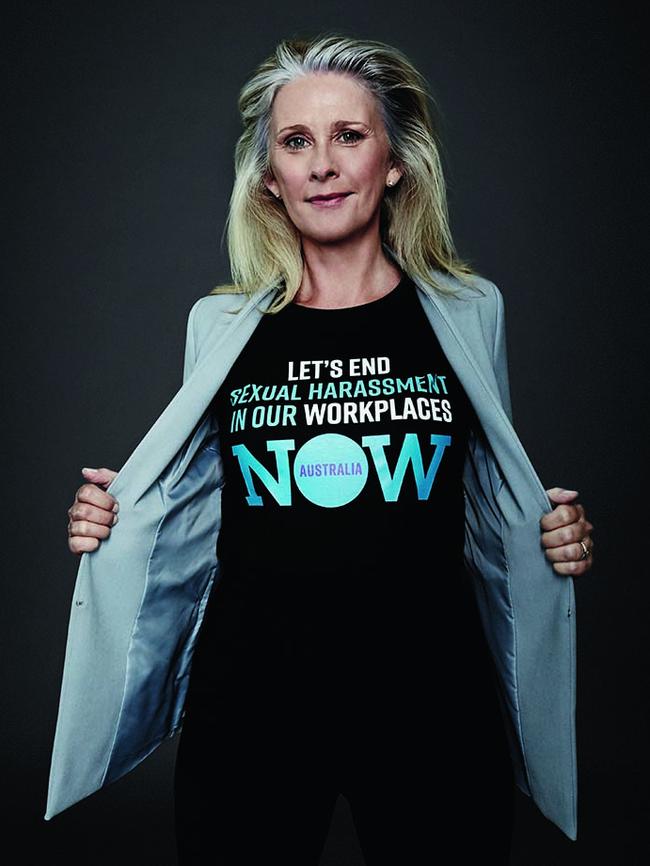
Spicer describes NOW as a “portal” that will enable people experiencing workplace harassment to find legal advice and counselling. The organisation’s website emphasises that it is open to both men and women, and to employees from all industries. It’s a conscious response to the accusation that #MeToo has been both divisive and elitist, inflaming the online gender war while offering little support to ordinary workers in lower-paid jobs. “I do think this movement has reached the centre,” counters Spicer. “I go to barbecues – and I live in Tony Abbott’s electorate, as you know – and older conservative men come up to me and say, ‘Thank you for doing this, for our children and grandchildren’. So I don’t think this is divisive at all.”
One person who declined to participate in NOW is Kerri-Anne Kennerley, who worries that Spicer’s campaign could backfire by creating an atmosphere of confrontation and distrust in the workplace that makes men reluctant to employ women. Carmel Travers, who is now an executive at Essential Media and Entertainment, wonders whether the grievances Spicer is pursuing and highlighting may reflect an era already passed. “Thirtysomethings in the workplace have grown up in a very different culture, and have had the benefit of a more enlightened set of values,” Travers says. “My concern is to ensure that the young men and young women who observe a different code of behaviour aren’t tarred with the same brush. Because I really think there has been a shift.”
Spicer joked recently that she was looking forward to getting back to paid work. Like all the 30-odd women who helped launch NOW Australia, she was a volunteer (the exception was a crowd-funding consultant, whom Spicer paid out of her own pocket). Fairfax and the ABC paid her as a researcher on the Burke and McLachlan stories, but she describes the fees as modest. NOW is hoping to employ three paid staff and rely on a team of pro bono lawyers and media advisers, assuming $250,000 can be raised through crowd-funding. But Spicer says she will have no operational role in the organisation, and plans to go back to writing and media training.
“I’m just a suburban mum,” she insists at one point, flirting close to disingenuousness. In reality she is now the most identifiable campaigner for women in the country, which seems unlikely to change as the debate sparked by #MeToo rolls on. “I think she’s found her true calling with this role,” says Prue MacSween. “She’s an activist.”





To join the conversation, please log in. Don't have an account? Register
Join the conversation, you are commenting as Logout